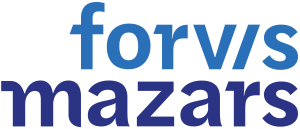If you are looking for a challenging but rewarding career, with the ability to improve public sector organisations and the opportunity to study a professional qualification, becoming an internal auditor is a great role.
Why did you choose a job in this sector?
I undertook periods of work experience before university in accountancy and financial services and it was something that I enjoyed. I wanted to have some involvement in the public sector as a result of my studies at university, and this role gives you the chance to change public sector institutions in a positive way, which helps both users of the service and taxpayers.
What are your main duties?
My main role is conducting the fieldwork for internal audits. This involves:
- Going to client sites: This means I can be somewhere different every week. Although travelling is part of the role, Mazars make every effort to place me in areas close to where I live. I enjoy the diversity of being in different environments instead of in the same office constantly.
- Meeting with clients: From an early stage in my career, I have been trusted with meeting high-level staff within organisations to identify what internal controls are in place. This can involve looking over documentation, interviewing staff or just observing how things work.
- Risk identification: I establish what risks are faced by the auditee that may prevent them achieving their objectives. I make a judgement on whether sufficient internal controls are in place to help mitigate these risks.
- Testing procedures: I identify, through discussion with my manager, what testing should be undertaken to obtain evidence for findings as well as assess the effectiveness of the internal controls in place.
- Report writing: As part of every audit, I write a report on my findings and make recommendations on how the client can improve. This report, after being quality reviewed by management, gets issued to key personnel in the organisation such as the Chief Executive and/or Directors.
One big advantage of working with Mazars is the variety of clients that I work with. Mazars is in the top four companies in the UK in regards to internal audit for public sector organisations.
- During my time at Mazars I have worked with:
- Local authorities
- Schools
- NHS hospitals and providers
- Housing associations.
There are also opportunities to work with colleges, universities, central government departments and NDPBs.
As well as working with a variety of clients, I also conduct a variety of audits. One week can involve looking at how a client receives money; the next looking at how decisions are made by the client. This enables me to get a good all round understanding of how the client and public sector organisations work in general. I have also had the opportunity to conduct fraud audits, which involves looking at an organisation and seeing if there is an opportunity for someone to commit fraud, or looking into specific cases of fraud.
As part of my training, Mazars pay for me to study the ACCA qualification. The firm pays for my registration, college, revision courses, materials and exams. They also give study leave for attending college and exams.
What are the most stressful parts of the job?
Although I have not found the job overly stressful, I have had to work very hard to meet the demands of the job, which principally relate to completing a quality deliverable within the required deadlines, and managing my time to perform at the highest levels on a day to day basis, whilst undertaking my studies for a professional qualification.
What skills are useful in this sector?
As this is very much a deadline driven role I need to be good at working efficiently and managing my time to deliver to the set timescales. Secondly, it is very important that I am comfortable talking to all types of people. Communication is vital to understanding how the organisation works, but also vital in explaining my opinion and what I found in my work. I have to be open-minded, no organisation works the same and audits always throw up things which surprise. Finally, attention to detail is essential in ensuring that the work is done as comprehensively as possible and that all findings are accurate and backed up by evidence.
What challenges have you come across and how did you overcome these?
The biggest challenge is managing the work with the need to do revision for exams. However the managers in Mazars are very understanding, and through communicating with managers they have identified ways of relieving the pressure. Mazars constantly remind you that your personal development and your qualifications are key and therefore they try their best to be flexible.
Do you have any advice for anyone wanting to get into the industry?
I would do a lot of research into the firms that you are applying to. All firms have different cultures and ways of working which you might enjoy or dislike. With Mazars, I enjoyed the fact that while the team is very large, you are not just seen as a number. The directors know me on first name terms, know what clients I work with, and regularly ask me how I am doing. The values that Mazars have in place match my own. In addition, if you are not so good with numbers and figures don’t be put off going into internal audit as a career, as the need for common sense in my role far outweighs the need for strong arithmetic abilities.






